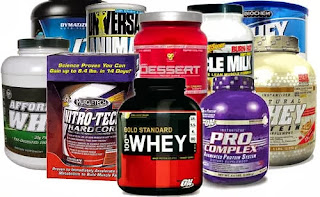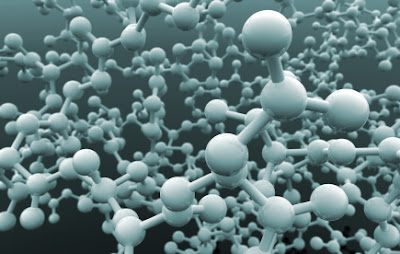Whey protein is a mixture of globular proteins isolated from whey,
the liquid material created as a by-product of cheese production.
Whey protein is a liquid by product of cheese
production that is sold as a dietary supplement in protein powders and shakes. Whey
protein used to be discarded by cheese manufacturers as a waste product.
Whey
protein is also a “complete protein” that is fast and easy to digest.
Whenever we eat a protein source, our body uses the 20 amino acids (which are
the individual components of “protein”) to repair our bones, muscles, organs
and virtually every body part and tissue in the human body. When a source of
protein has all 9 essential amino acids, which are amino acids your body needs
to get from food, that food is said to be a complete protein. Foods like meats,
dairy, eggs and rare vegetable proteins such as quinoa are complete proteins.
On the other hand, most vegetables, rice and starches are not complete proteins
because they are missing one or more of the essential amino acids.
Not
only do foods have different amino acid profiles, but the rate at which the
protein is absorbed by your body can vary. Of the different measures of protein
absorption, one of the most popular is Biological Value (BV). Whey protein is
of high biological value means that it absorption rate is 95-100%.
Major forms of whey
Whey protein typically comes in three major forms:
Concentrate (WPC),
Isolate (WPI), and Hydrolysate (WPH).
Concentrate (WPC),
Isolate (WPI), and Hydrolysate (WPH).
- Concentrates have typically a low level of fat and cholesterol but, in general, compared to the other forms
of whey protein, have higher levels of bio-active compounds, and
carbohydrates in the form of lactose — they are 29%–89% protein by
weight.
- Isolates are processed to remove the fat, and lactose, but are usually lower in bio-activated compounds as well — they are 90%+ protein by weight. Like whey protein concentrates, whey protein isolates are mild to slightly milky in taste.
- Hydrolysates are whey proteins that are predigested &
partially hydrolyzed for the purpose of easier
metabolism.
Whey
Protein Benefits
While no supplement can
replace a diet of whole, natural, unprocessed foods, whey protein can be useful
for people with a very busy, on-the-go lifestyle as a supplement to their
normal diet.
The benefits of a high-quality whey protein supplement range from purely aesthetic to health preserving. Some common benefits are :
The benefits of a high-quality whey protein supplement range from purely aesthetic to health preserving. Some common benefits are :
- Weight Loss
- Assists in increasing in muscle mass.
- Assist in cancer treatment.
- Increase in glutathione levels (your body’s main water-based anti-oxidant).
- Decrease in HIV symptoms.
- Decrease in triglycerides.
- Decrease in total cholesterol while increasing HDL (good cholesterol).
- Increase in immune system function.
- Increase in power in sports.
- Decreased recovery time and
symptoms of over-training
Amino acids are the building
blocks of proteins. Specific amino acids are used by your body for specific
reasons. For instance, whey protein is high in Branched-Chain Amino Acids
(BCAA’s), which are 3 of the 9 essential amino acids that are of special
importance for muscle repair and preservation. In both exercise and in recovery
of exercise, your body will break down a small amount of amino acids for fuel
(1-5%) and the specific amino acids your body uses are the BCAA’s. Although
this is a small percentage overall, your body will break down muscle in order to
get those BCAA’s. By providing the body with a high amount of BCAA’s, your body
preserves your muscle, while the specific amino acid leucine actually
stimulates protein synthesis.
·
This means is that leucine
sends a signal to your body to increase its storage of amino acids and the way
your body primarily does this is by adding muscle. Thus it helps in muscle
building.
·
Having enough BCAA’s is
essential to both help preserve the muscle, while also helping to stimulate
additional muscle growth. If you’re in a hypo-caloric state (if you’re trying
to lose weight and are cutting calories), preserving muscle becomes even more
important and ensuring that you have enough BCAA’s helps to keep your body from
losing muscle, while simultaneously helping you to lose fat.
·
Another huge benefit of whey
protein is that studies have indicated that glutathione production increases.
Although you may have heard of Vitamin C or Vitamin E as being anti-oxidants,
what your body mainly uses as an anti-oxidant to scavenge free radicals is
glutathione, making it one of the most important substances in your body.
Glutathione is made from three main amino acids; cysteine, glutamic acid and
glycine. The rate-limiting amino acid (what limits production of glutathione)
is usually the amino acid cysteine, and although the exact mechanism with whey
protein intake is not known, it is theorized that the relatively high amount of
cysteine in whey is what increases glutathione production.
·
Aflatoxin, a extremely potent carcinogen and major cause of mitochondria damage, and hence all bodily processes
including skeletal muscles, has been
shown to be inhibited by whey protein and ginseng extract.
Risks
Some people experience severe digestive issues following consumption of
whey protein concentrate.
- These may include gas, bloating, cramps, tiredness, weakness, fatigue, headaches, and irritability.
- One of the possible causes is lactose intolerance after they ingest whey concentrate.
- Undigested protein in the colon will undergo bacterial fermentation which leads to the production of, among other things, gas and fatty acids. Most of the literature has shown any of have these symptoms, they are most likely due to either the lactose (found more in Whey Protein Concentrate) or sweeteners used more so than the whey protein itself.
- With that said, there are different methods of whey production, such as ion-exchanged that can influence how well your body can utilize the protein, leading to improper digestion of the whey itself.
- The biggest fear often
expressed about whey protein intake is that too much protein is “bad for the
kidneys.” Research though has shown this is not true at all in healthy individuals.
For those with known kidney disease, high protein diets can exacerbate
pre-existing conditions. Healthy individuals, without any underlying or unknown
kidney disease have nothing to worry about with higher intakes of protein.
HAPPY EATING :-)



No comments:
Post a Comment